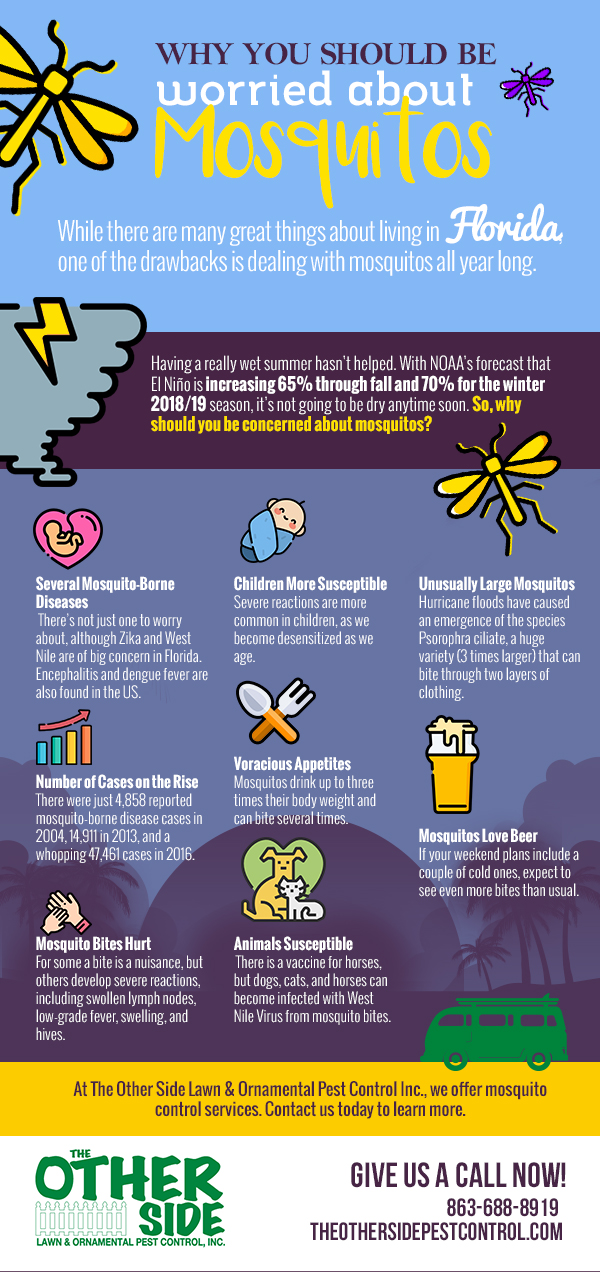Pest-Proofing Your Yard: Tips For Maintaining Exterior Parasites At Bay
Pest-Proofing Your Yard: Tips For Maintaining Exterior Parasites At Bay
Blog Article
Uploaded By-Walters Espersen
Visualize your yard as a sanctuary, a place of peace and appeal. However, the presence of exterior pests can rapidly disrupt this ideal picture. What if there were straightforward yet effective methods to keep these unwanted site visitors at bay and protect your yard sanctuary? By complying with a couple of functional suggestions and applying natural methods, you can produce an unified exterior room where your plants can thrive undisturbed.
Natural Parasite Deterrents
To keep parasites away from your garden normally, plant fragrant natural herbs like mint and lavender. These great smelling plants not just add charm to your yard but additionally function as effective parasite deterrents. Pests like mosquitoes, flies, and even some garden-damaging insects are fended off by the strong aromas released by these natural herbs. Simply placing them tactically around your garden can help produce an all-natural obstacle against unwanted insects.
Along with mint and lavender, think about planting various other herbs like rosemary, basil, and lemongrass to further boost your garden's pest-proofing capabilities. These herbs not only serve as all-natural repellents yet also have the added benefit of being useful in food preparation or crafting home made solutions.
Strategic Plant Placement
Think about the design of your yard and the types of plants you need to purposefully put them for optimum pest-proofing efficiency.
Begin by grouping responsible pest control with comparable resistance to pests with each other. By doing this, you can produce an all-natural obstacle that discourages bugs from spreading throughout your garden.
In addition, placing pest-repelling plants like marigolds, lavender, or mint near more susceptible plants can aid safeguard them. High plants, such as sunflowers or corn, can serve as a shield for much shorter plants versus bugs like rabbits or ground-dwelling bugs.
Keep in mind to leave sufficient space between plants to improve air blood circulation and minimize the danger of illness that pests could bring.
Moreover, consider growing strong-smelling natural herbs like rosemary or basil near prone plants to perplex bugs' detects and make it harder for them to locate their targets.
Effective Insect Control Techniques
For combating yard insects effectively, carrying out a multi-faceted pest control method is essential. Start by motivating all-natural predators like birds, ladybugs, and praying mantises to assist keep insect populaces in check. Introducing plants that draw in these helpful insects can help in bug control. Additionally, practicing great yard hygiene by removing particles and weeds where parasites could conceal can make your garden less friendly to undesirable site visitors.
Consider utilizing physical obstacles such as row cover textiles or netting to protect vulnerable plants from pests like caterpillars and birds. Using organic pesticides like neem oil or insecticidal soap can likewise work versus certain parasites while being much less hazardous to beneficial insects and the atmosphere. It's vital to rotate your crops each period to stop the build-up of insect populaces that target details plants.
On https://ratremovalinyard84061.blogpixi.com/32282064/acknowledging-common-indicators-of-termite-activity-in-your-home-an-in-depth-hands-on evaluate your plants for signs of insect damage so you can take action immediately. By combining these methods and remaining vigilant, you can properly regulate yard pests and delight in a thriving, pest-free garden.
Verdict
So, there you have it - with the right strategies, you can maintain pesky outdoor parasites far from your yard and help your plants prosper.
Did you recognize that planting mint has been revealed to fend off insects and other bugs, minimizing the need for damaging chemicals by approximately 60%?
By including natural deterrents and clever growing techniques, you can develop a stunning and pest-resistant garden oasis for you to enjoy.
